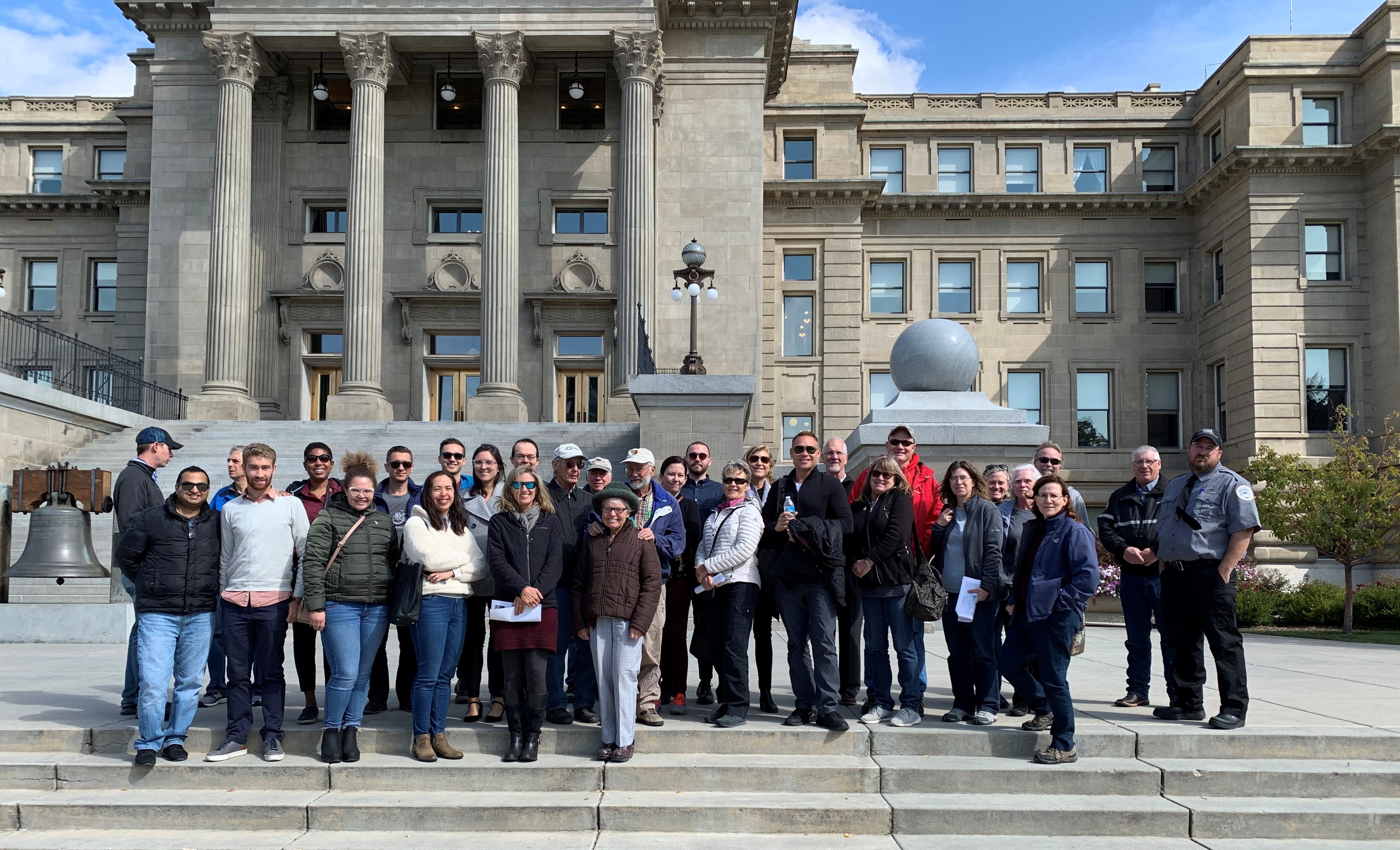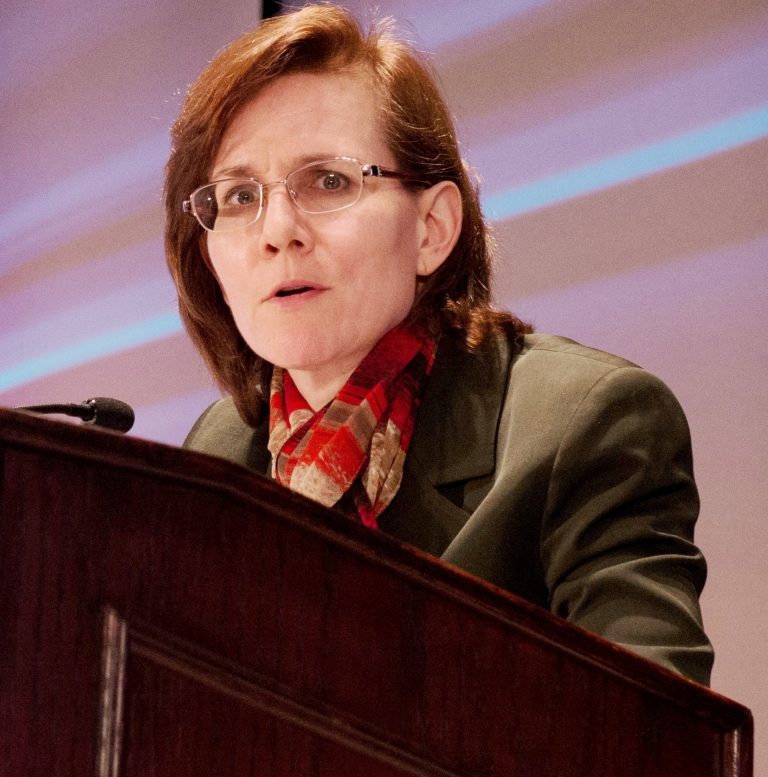The Energy Policy Institute is a non-partisan and evidence-based research and advising center that specializes in applied, social and technical analysis of energy systems. It does so by bridging engineering, economics, social science, humanities and management.

We work with policymakers, industry, and communities to advance understanding of trade-offs that are inherent in choices about sustainable, resilient and secure energy systems. As the lead for the Common Ground consortium and partner for other consortia, our team and partners draw upon integrative strengths in policy & regulation, science & engineering, as well as business & economics to advance planning and policy.
With external funding from the National Science Foundation, U.S. Department of Energy, the International Atomic Energy Agency, Sloan Foundation, and Western Governors’ Association, among funders, the Institute completes projects on a range of topics. Key areas of focus include: Policies and developments in geothermal energy; Critical mineral security and sustainability tied to energy; Community-informed and collaborative-based siting of critical infrastructure; Energy-water system resilience; Wildfires and the grid; Planning for regional diversification with energy; Cyber-security for energy facilities; Microgrids and planning for resilience; Energy jobs in economic restructuring; Storage and electricity markets; Transportation, energy and urban growth; etc.
EPI Team
-

Dr. Kathleen Araújo
Director and Professor of Sustainable Energy Systems, Innovation and Policy
Dr. Kathleen Araújo specializes in decision-making and management associated with resilience and energy system change. This includes social and technical aspects of innovation and sustainability, as well as the resilience of critical infrastructure amidst disruption from extreme weather, geopolitical flux, and cyber complexities.
Her research contributes to the advancing field on change in energy systems. For example, she analyzes the emergence of energy hubs in low carbon energy transitions, and regional revitalization strategies in traditional fossil fuel-based economies that are diversifying, such as with critical minerals development. She has also evaluated the global sustainability tradeoffs of biofuels, the role of skills and infrastructure repurposing, and international regulation of emergent technologies. Her book, Low Carbon Energy Transitions: Turning Points in National Policy and Innovation, examines the energy histories and technology hub development in four, prime mover countries, following the 1973 oil crisis. Her recent edited volume, the Routledge Handbook of Energy Transitions on the state of current knowledge about energy system change was awarded Best Edited Volume in Energy by the American Energy Society.
In 2023, Dr. Araújo was named a Presidential Innovator. She leads externally-funded research programs that consist of cross-disciplinary and multi-sectoral teams. This includes a national consortium that will provide recommendations to the U.S. Department of Energy on collaborative-based siting processes for critical infrastructure. Dr. Araújo also serves as a lead for Boise State and the State of Idaho on a $24 million NSF-State award to evaluate energy-water system resilience. Dr. Araújo advises communities, industry and inter-governmental organizations. For information about Dr. Araújo’s work in energy education, see Innovative partnership powers student education in ’21st Century Opportunities and Challenges in Energy’.
Dr. Kathleen Araújo specializes in decision-making and management associated with resilience and energy system change. This includes social and technical aspects of innovation and sustainability, as well as the resilience of critical infrastructure amidst disruption from extreme weather, geopolitical flux, and cyber complexities.
Her research contributes to the advancing field on change in energy systems. For example, she analyzes the emergence of energy hubs in low carbon energy transitions, and regional revitalization strategies in traditional fossil fuel-based economies that are diversifying, such as with critical minerals development. She has also evaluated the global sustainability tradeoffs of biofuels, the role of skills and infrastructure repurposing, and international regulation of emergent technologies. Her book, Low Carbon Energy Transitions: Turning Points in National Policy and Innovation, examines the energy histories and technology hub development in four, prime mover countries, following the 1973 oil crisis. Her recent edited volume, the Routledge Handbook of Energy Transitions on the state of current knowledge about energy system change was awarded Best Edited Volume in Energy by the American Energy Society.
In 2023, Dr. Araújo was named a Presidential Innovator. She leads externally-funded research programs that consist of cross-disciplinary and multi-sectoral teams. This includes a national consortium that will provide recommendations to the U.S. Department of Energy on collaborative-based siting processes for critical infrastructure. Dr. Araújo also serves as a lead for Boise State and the State of Idaho on a $24 million NSF-State award to evaluate energy-water system resilience. Dr. Araújo advises communities, industry and inter-governmental organizations. For information about Dr. Araújo’s work in energy education, see Innovative partnership powers student education in ’21st Century Opportunities and Challenges in Energy’.
-

Ms. Cassandra Koerner
Assistant Director of Research, Communications & Development
Ms. Cassandra Koerner joined the EPI team in March 2020 as the Assistant Director of Research, Communications, and Development. She brings years of experience working in the public sector as a regulator, researcher, technical writer, and budget manager as well as a private contractor. Her education and experience provide a scientific and technical framework on which to build policy investigations. She has published articles and book chapters regarding small modular nuclear reactors, nuclear perceptions, energy efficiency, renewable energy in the west, carbon sequestration, and international carbon markets, as well as others on general energy and environmental issues. Koerner holds a Master of Public Administration from Boise State University (2012) and a Master of Arts in political science and environmental policy from Colorado State University (2016). She earned her Bachelor of Science degree in natural resource conservation from the University of Montana (2005).
Ms. Cassandra Koerner joined the EPI team in March 2020 as the Assistant Director of Research, Communications, and Development. She brings years of experience working in the public sector as a regulator, researcher, technical writer, and budget manager as well as a private contractor. Her education and experience provide a scientific and technical framework on which to build policy investigations. She has published articles and book chapters regarding small modular nuclear reactors, nuclear perceptions, energy efficiency, renewable energy in the west, carbon sequestration, and international carbon markets, as well as others on general energy and environmental issues. Koerner holds a Master of Public Administration from Boise State University (2012) and a Master of Arts in political science and environmental policy from Colorado State University (2016). She earned her Bachelor of Science degree in natural resource conservation from the University of Montana (2005).
-

Dr. Stephanie Lenhart
Senior Research Associate and Associate Research Professor
Stephanie Lenhart is a Senior Research Associate with the Energy Policy Institute and is faculty in the School of Public Service at Boise State University. She studies energy system governance, environmental policy implementation, and inter-organizational collaboration. Recent work has focused on decision-making by public utilities and electric cooperatives and inter-organizational collaboration in regional transmission organizations.
Stephanie Lenhart is a Senior Research Associate with the Energy Policy Institute and is faculty in the School of Public Service at Boise State University. She studies energy system governance, environmental policy implementation, and inter-organizational collaboration. Recent work has focused on decision-making by public utilities and electric cooperatives and inter-organizational collaboration in regional transmission organizations.
-

Jake Placido
Business Operations Manager
Jake Placido is the Energy Policy Institute’s Business Operations Manager. After completing his undergraduate studies at Boise State, he served in the United States military. Following his service, he worked in the financial technology sector and completed a Professional MBA with Boise State.
Jake Placido is the Energy Policy Institute’s Business Operations Manager. After completing his undergraduate studies at Boise State, he served in the United States military. Following his service, he worked in the financial technology sector and completed a Professional MBA with Boise State.
-

Anna Kouts
Research Associate
Anna Kouts started with the Energy Policy Institute as a Graduate Research Assistant and transitioned to a Research Associate position. She holds a Master of Public Administration and a Certificate in Environmental Governance from Boise State University. She is interested in researching low-carbon energy transitions, public participation in environmental decision-making, and risk governance related to emerging technologies. She has conducted community-engaged research on resource adequacy, tribal energy sovereignty, and participatory decision-making. Prior to academia, Anna worked in the arts in Australia and is interested in bringing a creative perspective to policy research.
Anna Kouts started with the Energy Policy Institute as a Graduate Research Assistant and transitioned to a Research Associate position. She holds a Master of Public Administration and a Certificate in Environmental Governance from Boise State University. She is interested in researching low-carbon energy transitions, public participation in environmental decision-making, and risk governance related to emerging technologies. She has conducted community-engaged research on resource adequacy, tribal energy sovereignty, and participatory decision-making. Prior to academia, Anna worked in the arts in Australia and is interested in bringing a creative perspective to policy research.
Student Researchers
-

Lane Justus
Masters of Environmental Management
-

Alex Thompson
Bachelors of Economics